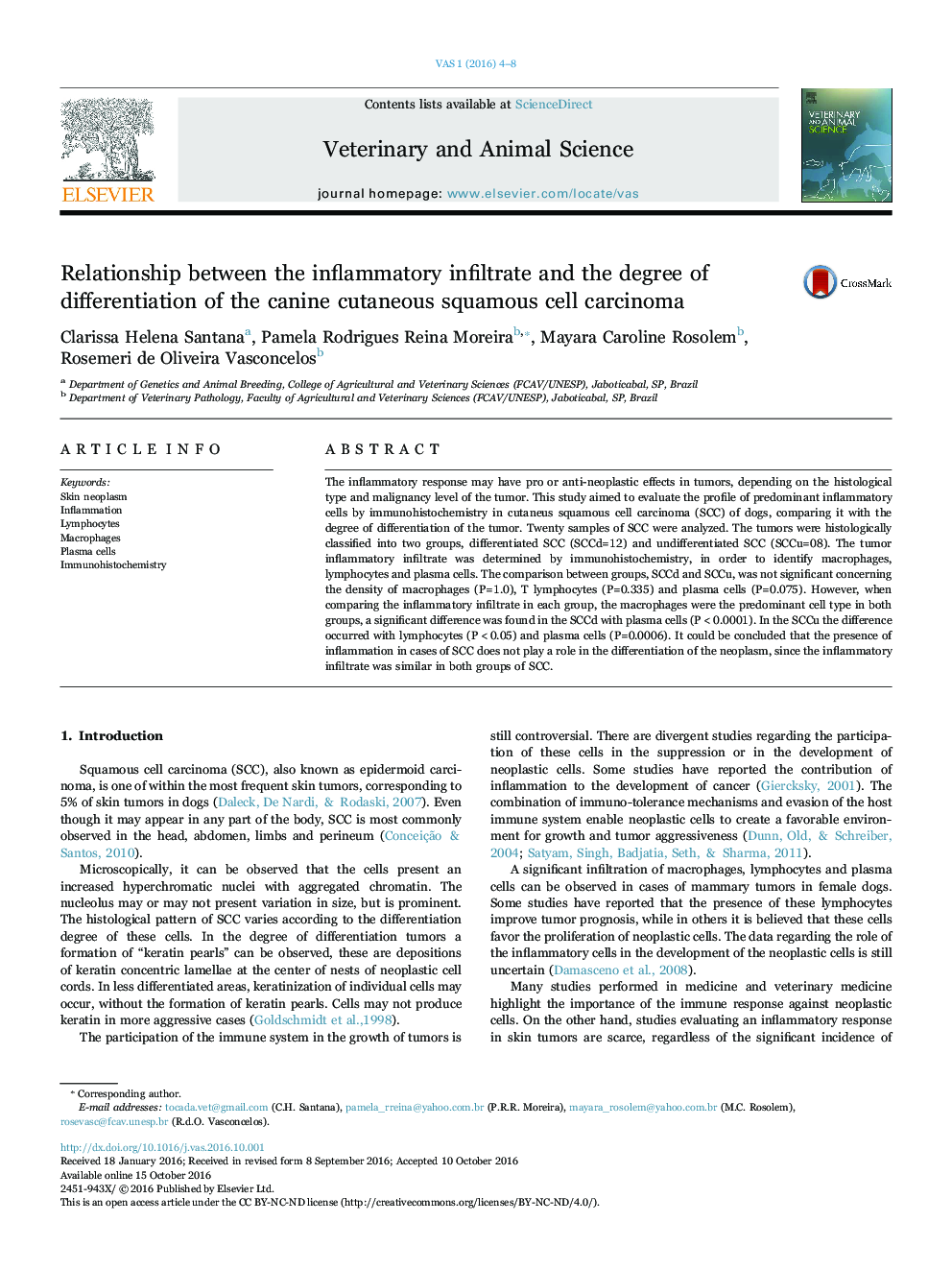| Article ID | Journal | Published Year | Pages | File Type |
|---|---|---|---|---|
| 5537543 | Veterinary and Animal Science | 2016 | 5 Pages |
Abstract
The inflammatory response may have pro or anti-neoplastic effects in tumors, depending on the histological type and malignancy level of the tumor. This study aimed to evaluate the profile of predominant inflammatory cells by immunohistochemistry in cutaneus squamous cell carcinoma (SCC) of dogs, comparing it with the degree of differentiation of the tumor. Twenty samples of SCC were analyzed. The tumors were histologically classified into two groups, differentiated SCC (SCCd=12) and undifferentiated SCC (SCCu=08). The tumor inflammatory infiltrate was determined by immunohistochemistry, in order to identify macrophages, lymphocytes and plasma cells. The comparison between groups, SCCd and SCCu, was not significant concerning the density of macrophages (P=1.0), T lymphocytes (P=0.335) and plasma cells (P=0.075). However, when comparing the inflammatory infiltrate in each group, the macrophages were the predominant cell type in both groups, a significant difference was found in the SCCd with plasma cells (P<0.0001). In the SCCu the difference occurred with lymphocytes (P<0.05) and plasma cells (P=0.0006). It could be concluded that the presence of inflammation in cases of SCC does not play a role in the differentiation of the neoplasm, since the inflammatory infiltrate was similar in both groups of SCC.
Related Topics
Life Sciences
Agricultural and Biological Sciences
Animal Science and Zoology
Authors
Clarissa Helena Santana, Pamela Rodrigues Reina Moreira, Mayara Caroline Rosolem, Rosemeri de Oliveira Vasconcelos,
